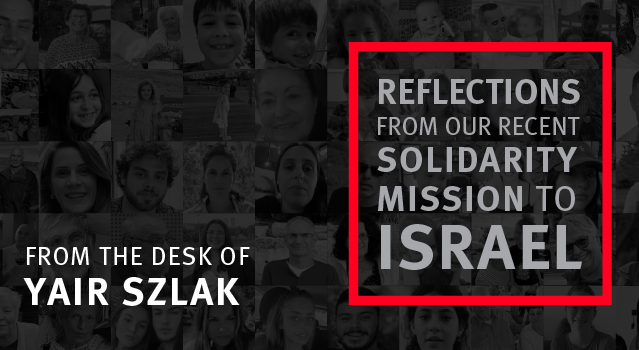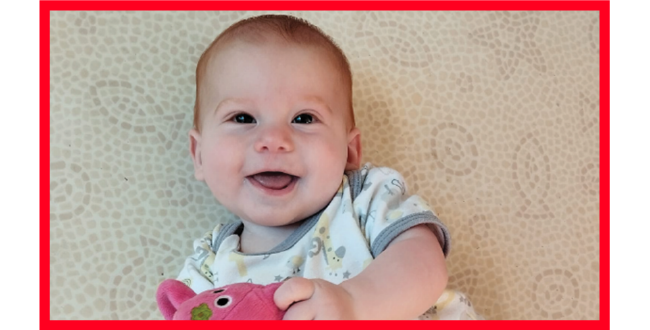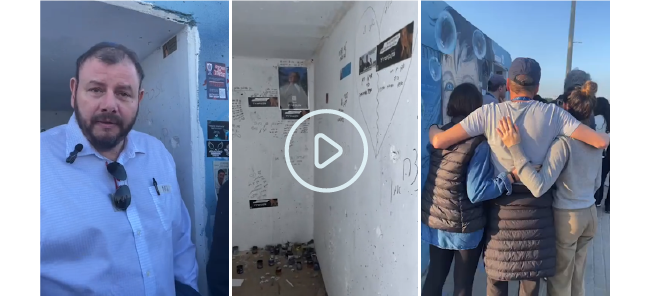

January 26, 2024
It has taken me nearly a week to process my latest visit to Israel, a journey I embarked on with 27 fellow Montreal community members as part of our January Solidarity Mission. It has taken me time, not because this visit was any less emotional or impactful, להבדיל – quite the opposite, perhaps even more so. It has been difficult to process because over 110 days after Black Saturday, so many in the country are still living the nightmare of October 7th, with over 130 hostages still unaccounted for and the fatalities from the war with Hamas escalating daily.
The recent death of 24 brave soldiers in a single day has only amplified the pervasive sense of despair felt when engaging with everyday citizens. Yet, amidst this sorrow, there are unmistakable signs of resilience and recovery across the nation. The gratitude for the support and assistance from Jews worldwide is palpable. The significance of travelling to Israel on these missions has never been more important.
The airport was visibly busier this time around. Israelis are travelling again. Families are seeking a much-needed respite from over 100 days of war; business professionals are gradually resuming their international travels. While it's still a far cry from the hustle and bustle days of old, there’s a sense of Israelis trying to figure out a new normal—just another sign of the resilience of our nation.
The saddest first birthday
January 18th brought the heart-wrenching first birthday of Kfir Bibbas, who, along with his brother and mother, have been held hostage by Hamas for over 110 days since the harrowing events of Black Saturday. Our Montreal Solidarity Mission had the solemn honour of being the first delegation to visit Kibbutz Nir Oz. Amidst the distant echoes of bombings and the constant hum of aircraft overhead, we entered Kibbutz Nir Oz, arriving at the very fence where, on October 7th, Hamas terrorists entered the kibbutz to kill, rape, and kidnap the residents of this peaceful agricultural community.

The members of Kibbutz Nir Oz, typically known for their ‘left-leaning,’ peace-loving values, had historically welcomed Palestinians from Gaza into their homes and community. Only two kilometres from Khan Yunis, the kibbutz was the tranquil home of 400 members on October 6th.
As we toured Kibbutz Nir Oz, led by the son of one of its surviving founders, we were reminded of a story all too familiar yet endlessly heartbreaking. It all began at 6:30 AM on October 7th, when 4,000 rockets were fired into Israel. Initially, about 100 Hamas terrorists breached the kibbutz, killing and terrorizing its members.
Unlike at Kibbutz Kfar Aza or Be’eri, the IDF never made it to Nir Oz. There, I saw a different scene: there were no signs of a battle, like in Be'eri or Kfar Aza - no bullets or widespread destruction. Homes were set on fire to force residents out, but there was no sign of a two-way battle. In fact, it is estimated that 1,000 Hamas terrorists and Palestinian citizens of Khan Yunis infiltrated and left Nir Oz during those harrowing 15 hours. Out of the 400 kibbutz members, 77 were murdered because they were Jewish, and 31 were kidnapped—including little Kfir Bibas with his four-year-old brother and mother.
Standing outside their house the day before Kfir’s birthday was surreal, to say the least. The children’s garden toys, tricycles, and games sit still in the courtyard of the family’s modest kibbutz home, now frozen in time. It is unimaginable how, in just a few hours, the lives of so many were destroyed and changed forever. The uncertainty of families returning to their homes in Nir Oz looms heavy. I can’t imagine anyone coming “home” to Nir Oz as it stands today—there’s too much pain.
Bomb shelters turned into death traps for Nova Festival participants
On the road back from Kibbutz Nir Oz, we stopped at the site of the Nova Music Festival at Re’im, now a sombre memorial for the over 360 souls who were murdered in cold blood trying to escape the festival. The world is slowly learning about the extent of the horrific massacre and sexual atrocities that took place at the hands of the Hamas terrorists. Standing on the festival grounds, the sound of IDF artillery in the background provided a stark contrast to the joyous music that once filled the air.
Initially unaware of the festival, the Hamas terrorists mercilessly massacred as many of the festival-goers as they could hunt down. Over 3,000 innocent citizens who were dancing the night away found their celebration shattered at 6:30 AM as rockets tore through the sky, plunging the festival into chaos. In their frantic efforts to escape, they were met with the chilling site of pickup trucks, with heavily armed Hamas terrorists ready to murder anyone in their way. And so they did.
Alex Look z”l, born and raised in Montreal, had spent the summer in Israel and was preparing to return home after the Chagim. On October 7th, he was at the Nova Music Festival with friends. As rockets began at 6:30 AM, they got into a car and started driving away from the festival. Near Kibbutz Be’eri, they encountered the chaos unfolding on the roads. Fleeing their car, they ran into a nearby “migonit” (bomb shelter) at the entrance to Kibbutz Be’eri. Tragically, their refuge turned into a scene of horror when Hamas terrorists arrived, killing Alex z”l and tossing grenades into the cramped space.
Over 30 young adults were huddled in the small room, barely 6 feet by 10 feet. Many were killed in the grenade blasts, and those who survived did so by laying under the bodies and body parts of others. Witnesses who survived the migonit at Kibbutz Be’eri hailed Alex as a hero as he stood at the entrance, trying to protect those inside.
On January 19th, 2024, our Montreal delegation stood at the very migonit where Alex was killed. We said a prayer for him and recited Kaddish for all those who were murdered that day on Kiddush Hashem.
Heroes amidst tragedy and the TikTok generation
Listening to Yossi Landau from Zaka, whose bravery and heroism during and in the aftermath of October 7th can be nothing short of superhuman, reminds us that Am Israel is strong, resolute, and resilient. The Zaka volunteers witnessed first-hand the WORST of what humanity had to offer as they painstakingly went house to house through the kibbutzim. They encountered scenes of unspeakable horror—bodies strewn across roads, cars, and fields. They witnessed horrific sexual violence. Mutilations. Beheadings. The sickening smell of burnt flesh. Yet, with a dignity that can only be described as Kiddush Hashem, they ensured hundreds of Jewish souls received proper Jewish burials.
In the wake of the atrocities of October 7th, Israeli media began broadcasting the stories of countless heroes who rose to the occasion on that fateful day and after that. This period has unveiled a remarkable facet of the TikTok generation – young people willing, able, and prepared to defend the Jewish State. This generation is making the ultimate sacrifice to defend the Jewish People with heroism, dignity, compassion, and respect. They continue to make our nation proud and shine as a beacon of hope amidst the darkness. They symbolize the promise of a new wave of heroes, determined to rebuild the nation for a stronger, more resilient future.
Yesterday was good; tomorrow will be again
Shlomo Artzi's 1992 song, "ירח – Moon," beautifully captures the essence of hope and resilience with its poignant lyrics: אתמול היה טוב ויהיה גם מחר - "Yesterday was good; tomorrow will be again." In so many ways, this is how I feel about our situation as a Jewish People today. Despite the heartache of today, with the grim reality of 136 hostages being held in the hands of Hamas and the ongoing conflict, there's a persevering spirit within the TikTok generation, surprisingly emerging as defenders of our nation.
Each morning, we are reminded of the relentless nightmare that began over 110 days ago on October 7th. It can be hard to see through today's sorrow, but there’s a belief that tomorrow will be good again. We know this because the people of Israel are resilient, and the Jewish People around the world represent the third line of defence after the IDF and everyday Israeli citizens. Collectively, we have risen to the occasion and have pushed back, repelled, and taken head-on the challenges of antisemitism and antizionism globally. A united Jewish People is a resilient people, poised for a stronger and brighter future.
אתמול היה טוב ויהיה גם מחר
Shabbat Shalom, Am Israel Chai.
Yair Szlak, LL.B
President and Chief Executive Officer,
Federation CJA

